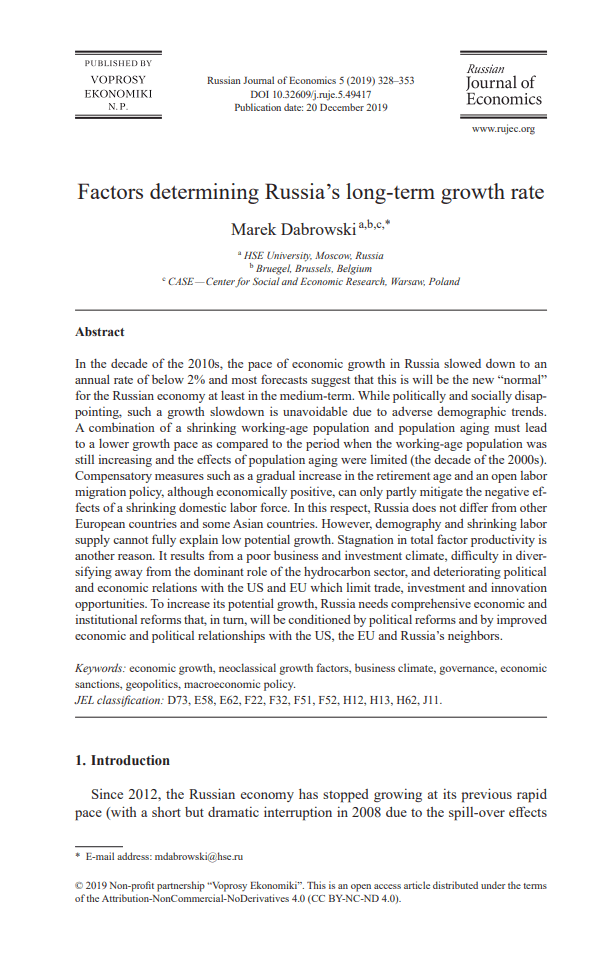External Publication
Factors determining Russia’s long-term growth rate
This paper’s main conclusion is that Russia’s economy cannot grow at the pace recorded in the early and mid-2000s because of the different external environment, the different stage of development and serious demographic headwinds.
In the decade of the 2010s, the pace of economic growth in Russia slowed down to an annual rate of below 2% and most forecasts suggest that this is will be the new “normal” for the Russian economy at least in the medium-term. While politically and socially disappointing, such a growth slowdown is unavoidable due to adverse demographic trends.
A combination of a shrinking working-age population and population aging must lead to a lower growth pace as compared to the period when the working-age population was still increasing and the effects of population aging were limited (the decade of the 2000s).
Compensatory measures such as a gradual increase in the retirement age and an open labor migration policy, although economically positive, can only partly mitigate the negative effects of a shrinking domestic labor force. In this respect, Russia does not differ from other European countries and some Asian countries.
However, demography and shrinking labor supply cannot fully explain low potential growth. Stagnation in total factor productivity is another reason. It results from a poor business and investment climate, difficulty in diversifying away from the dominant role of the hydrocarbon sector, and deteriorating political and economic relations with the US and EU which limit trade, investment and innovation opportunities. To increase its potential growth, Russia needs comprehensive economic and institutional reforms that, in turn, will be conditioned by political reforms and by improved economic and political relationships with the US, the EU and Russia’s neighbors.














